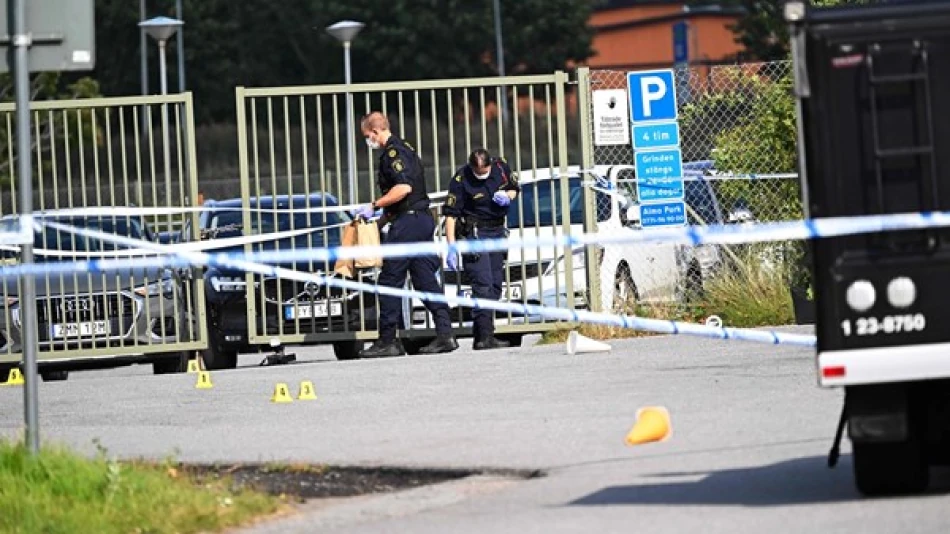
Swedish Authorities Apprehend Suspect After Shooting Near Mosque, Raising Concerns in the Community
Sweden's Gang Violence Crisis Deepens as Mosque Shooting Claims Life in Örebro
Swedish police have arrested a suspect in connection with a deadly shooting near a mosque in Örebro that killed one man and wounded another, highlighting the country's escalating struggle with organized crime violence. The incident, which occurred after Friday prayers last week, represents another stark reminder of how gang-related shootings have become increasingly common across Sweden, transforming the Nordic nation's security landscape.
The Örebro Incident: Latest in a Pattern of Violence
The shooting took place near the mosque's parking area, where two men aged between 20 and 30 were found with gunshot wounds. Both victims were rushed to hospital, but one succumbed to his injuries. Police arrested the suspect overnight on charges of participating in the murder.
The timing proved particularly sensitive for Örebro, a city located 200 kilometers west of Stockholm. The arrest came as the local Risbergska school reopened for the first time since a devastating shooting in February that claimed 11 lives, including the gunman. Unlike the mosque incident, police believe the school shooter acted alone.
Sweden's Gang Violence Epidemic
Swedish authorities have linked the mosque shooting to organized crime, reflecting a broader pattern that has plagued the country for years. What was once considered one of Europe's safest nations now grapples with regular gang-related shootings, explosions, and territorial disputes.
The Scale of the Problem
Sweden's gang violence crisis stands out even among European nations facing similar challenges. The frequency and brazenness of shootings have increased dramatically, with incidents occurring in broad daylight and in populated areas. Unlike traditional organized crime that operated in shadows, Swedish gangs have shown little regard for civilian safety or sacred spaces.
The fact that this shooting occurred near a mosque after Friday prayers suggests either a targeted attack on specific individuals or a concerning expansion of gang violence into religious spaces. This represents a troubling escalation that could further destabilize community relations and public safety.
Broader Implications for Swedish Society
Security and Integration Challenges
The mosque shooting raises complex questions about community safety and social cohesion in Sweden. Religious institutions, traditionally viewed as sanctuaries, are increasingly finding themselves in proximity to violent incidents. This trend could undermine community trust and complicate integration efforts in a country that has welcomed significant immigration over recent decades.
Law Enforcement Response
The quick arrest in this case demonstrates improved police capabilities, but the underlying problem persists. Swedish authorities have struggled to dismantle the organizational structures that enable gang violence, often finding themselves responding to incidents rather than preventing them.
The parallel between the mosque shooting and the school massacre in the same city within months illustrates the multifaceted nature of Sweden's violence problem. While the school shooting appeared to be an isolated incident by a lone perpetrator, the mosque shooting fits the pattern of organized crime violence that has become endemic.
A Nation Grappling with Change
Sweden's transformation from a peaceful Nordic welfare state to a country regularly experiencing gang shootings represents one of Europe's most dramatic security deteriorations. The Örebro incidents—both the organized crime shooting and the school massacre—underscore how violence has penetrated different aspects of Swedish society.
As Swedish authorities continue their efforts to contain gang violence, the arrest in the mosque shooting case offers a small measure of progress. However, the frequency of such incidents suggests that Sweden's battle against organized crime violence will require sustained, comprehensive strategies beyond traditional law enforcement responses.
Most Viewed News

 Layla Al Mansoori
Layla Al Mansoori






